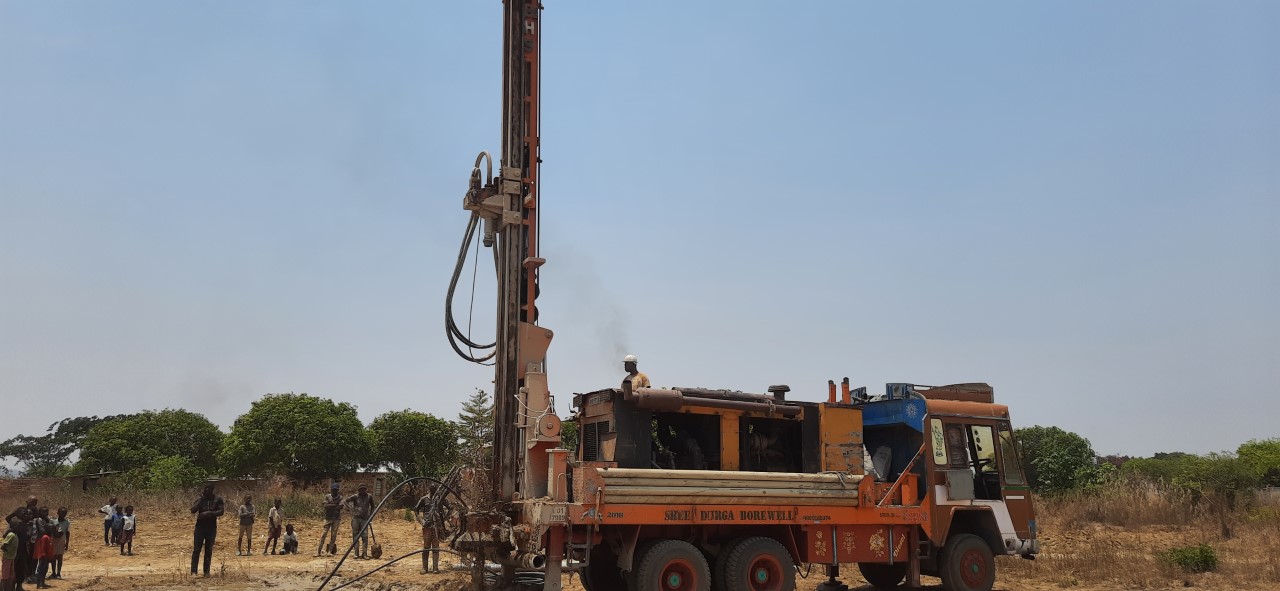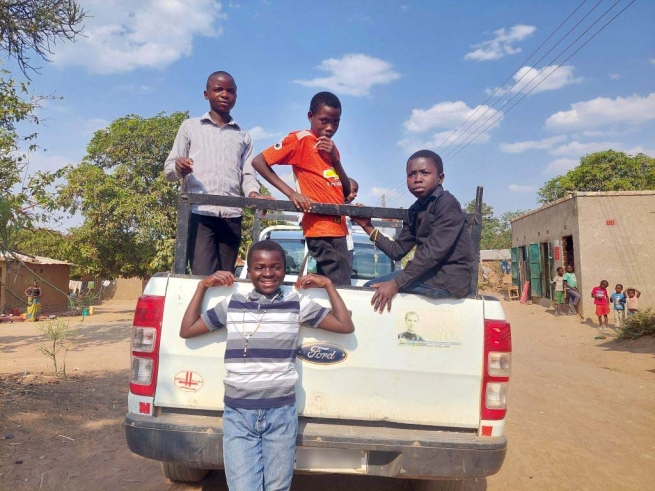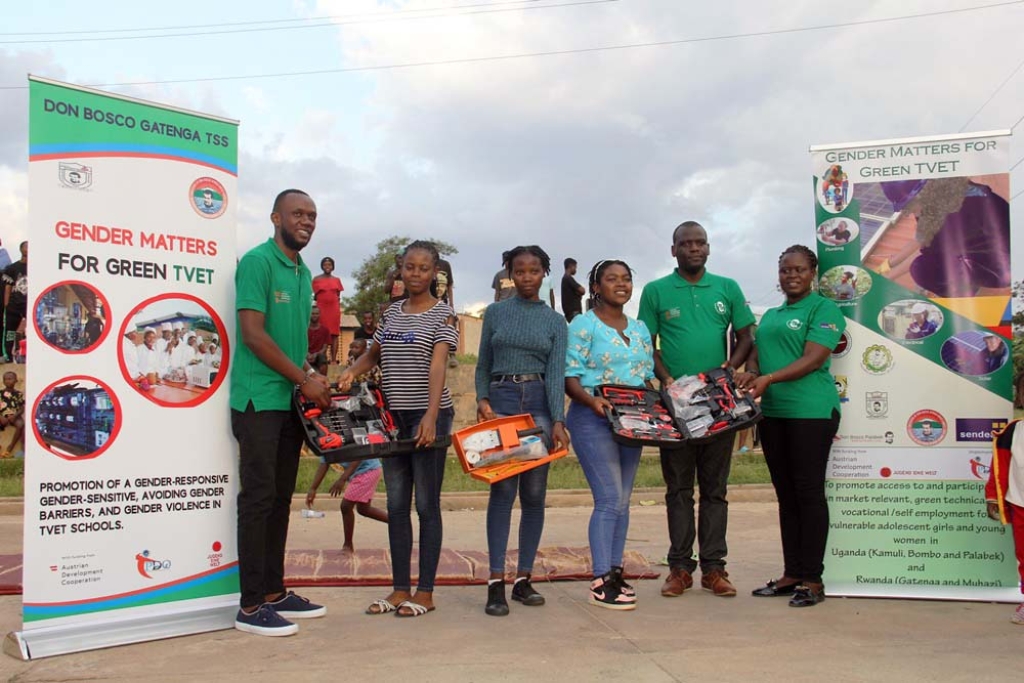GLOBAL PARENTS DAY: Salesian Missions highlights programs around the globe that provide education and supportive services to families
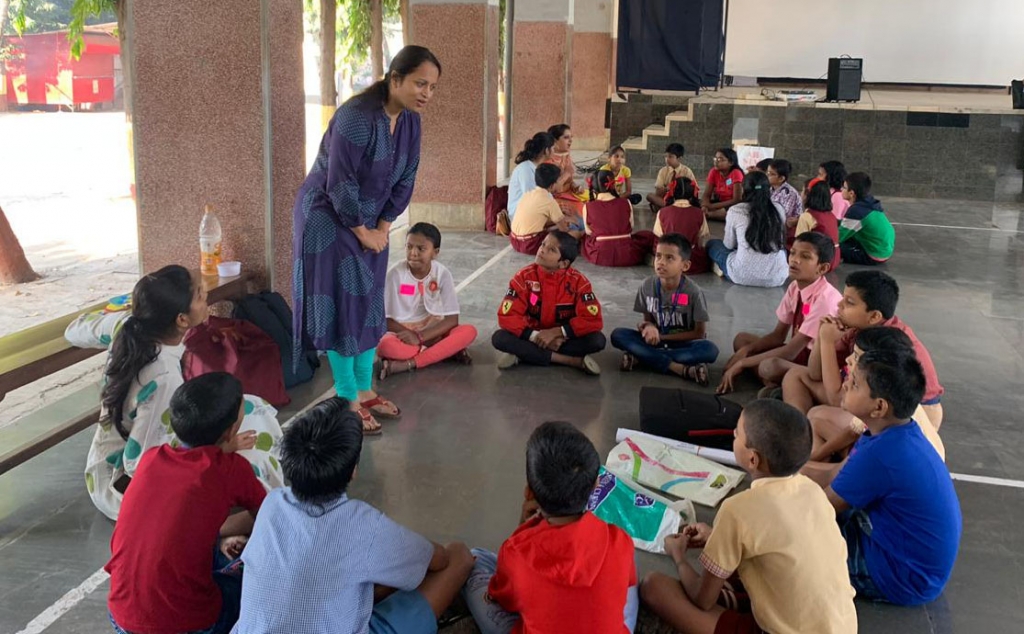
(MissionNewswire) Salesian Missions joins the United Nations and the international community in celebrating Global Parents Day which was proclaimed by the UN General Assembly in 2012. The day, celebrated each year on June 1, honors parents throughout the world and provides an opportunity to appreciate all parents for their commitment to children.
The United Nations notes, “Emphasizing the critical role of parents in the rearing of children, the Global Day of Parents recognizes also that the family has the primary responsibility for the nurturing and protection of children. For the full and harmonious development of their personality, children should grow up in a family environment and in an atmosphere of happiness, love and understanding.”
“Connecting with parents and providing them support, so they can in turn help their children stay in school and focus on their studies, is part of the work of Salesian missionaries,” says Father Mark Hyde, director of Salesian Missions, the U.S. development arm of the Salesians of Don Bosco. “While our primary focus is on education, we also aim to provide wrap around services that help youth and their families lead healthy and productive lives.”
In honor of the Global Parents Day, Salesian Missions is proud to share some of its programs around the globe that provide education and support for parents and their children.
DR CONGO
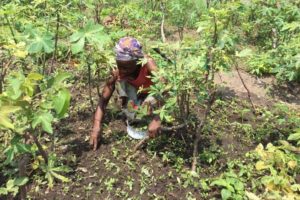 Salesian missionaries in Mont Ngafula, a municipality of Kinshasa, the capital of the Democratic Republic of Congo (DRC)*, have launched a new project to help women of the parish start small agricultural activities to generate income. With no roadway to connect it to the city, the small town of Mont Ngafula faces isolation and economic challenges as well as a lack of water and electricity and few jobs for its residents. Many families in the community have difficulty meeting their basic needs.
Salesian missionaries in Mont Ngafula, a municipality of Kinshasa, the capital of the Democratic Republic of Congo (DRC)*, have launched a new project to help women of the parish start small agricultural activities to generate income. With no roadway to connect it to the city, the small town of Mont Ngafula faces isolation and economic challenges as well as a lack of water and electricity and few jobs for its residents. Many families in the community have difficulty meeting their basic needs.
Inside the Don Bosco Mission’s grounds there are small plots of land set aside for the production of vegetables, fruit and cereals as well as space for breeding small farm animals. All of these farming activities contribute to the sustenance of families. Local women planning to participate in the project have set a goal of achieving food self-sufficiency through the cultivation of vegetables that, once the gardens are fully operational, can be sold to the market.
To launch this project, Salesian missionaries will provide modern and integrated training for women in the agricultural sciences. Within a year, the goal is for 80 percent of participants to be able to benefit from a supply of seeds and tools to renew cultivation in their own gardens. Then, after the harvest, they will be able to reimburse Salesian missionaries for the loan of the means of production, delivering to them 20 percent of the vegetables to feed orphans who are guests of the Maison Papy community, another structure within the mission.
HONDURAS
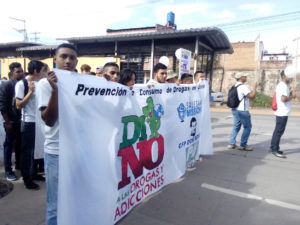 The Don Bosco Vocational Training Center in Tegucigalpa, Honduras, has been implementing a “Preventing Drug Consumption by Youngsters in Honduras” project to provide life skills training to 500 youth between the ages of 15 and 30 over a two-year period. The goal is to reduce the involvement of youth who are at high social risk of drug abuse and related criminal activities in the criminal justice system. Salesian Missions secured the project funding through a grant from the Department of State Bureau of International Narcotics and Law Enforcement.
The Don Bosco Vocational Training Center in Tegucigalpa, Honduras, has been implementing a “Preventing Drug Consumption by Youngsters in Honduras” project to provide life skills training to 500 youth between the ages of 15 and 30 over a two-year period. The goal is to reduce the involvement of youth who are at high social risk of drug abuse and related criminal activities in the criminal justice system. Salesian Missions secured the project funding through a grant from the Department of State Bureau of International Narcotics and Law Enforcement.
The life skills training touches on topics including self-knowledge, self-esteem, assertive communication, interpersonal relationships, conflict resolution, resilience, youth leadership and ethical and moral values. Participating youth are also able to access sporting and other recreational activities including football, volleyball, dance and art workshops, guitar and other music lessons.
Further activities of this project aim to help strengthen the whole family. A common challenge for participants is having at least one family member grappling with a drug issue or conflict with the law. Many come from families that have completely disintegrated. Often, there are serious economic problems at home that resulted in participants not having their basic needs met and lacking basic services such as food, drinking water and access to transportation.
In August 2018, there was a hosted meeting involving 207 parents and children to discuss the theme, “Let’s make the family the best place to grow.” This meeting provided opportunities for reflection and discussion on ways to better communicate as a family and have parents be a more positive influence on their children. Project staff have recognized that family attitudes can affect the development of youth and drug problems can be prevented by addressing family issues such as domestic violence, negative attitudes and parental drug use.
INDIA
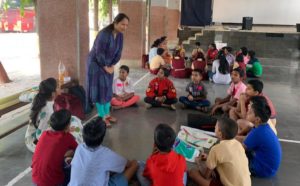 As a result of rampant poverty, child abuse and exploitation as well as high incidences of child labor, many poor youth in India face psychological and emotional difficulties. Often, parents are unable to deal with these problems at home so turn to school staff and teachers for extra support.
As a result of rampant poverty, child abuse and exploitation as well as high incidences of child labor, many poor youth in India face psychological and emotional difficulties. Often, parents are unable to deal with these problems at home so turn to school staff and teachers for extra support.
Don Bosco’s Prafulta Psychological Services was started in 1998 and provides psychological evaluation and diagnosis, professional counseling, career guidance, remedial education, psychiatric services and occupational therapy. The organization’s psychologists and other professionals offer these services to individuals, groups and families to help aid independent functioning and improve quality of life.
The Don Bosco Teacher Training Program in Remedial Education, which Prafulta Psychological Services began offering in May 2014, aims to empower teachers, school counselors and parents by giving them the information and the know-how to effectively help children with varying needs and disabilities in mainstream schools. For more advanced training, Prafulta offers a certificate course in educational counseling enabling practitioners to understand children’s difficulties in both educational and emotional areas.
###
Sources:
ANS Photo (usage permissions and guidelines must be requested from ANS)
*Any goods, services, or funds provided by Salesian Missions to programs located in this country were administered in compliance with applicable laws and regulations, including sanctions administered by the U.S. Department of Treasury’s Office of Foreign Asset Control.


